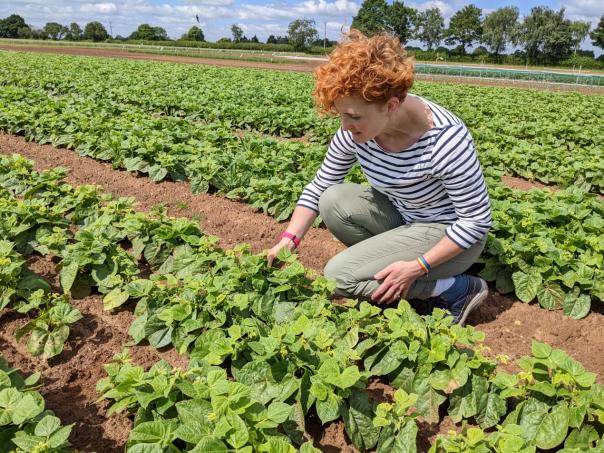
Lasting two years, it will aim to improve the sustainability of supply chains, focusing on bean growth and consumption in the UK. BeanMeals will encourage the cooking and eating of meals made with dried beans to support an increase in low fat, sugar and salt meals made with healthy plant-based proteins.
The University of Warwick has developed two haricot beans which are suitable for UK growing – Godiva and Capulet.
The National Food Strategy White Paper states that ‘British-grown beans and pulses are another great example of low carbon sustainable proteins that contribute to healthy diets’. As well as a source of protein and fibre, dried beans are minimally processed so can support a reduction in consumption of ultra-processed foods.
FFL’s role in the project is to:
- Enhance food knowledge for children and families
- Enable teachers and senior leadership teams to increase discussions about healthy diets with bean-based low FSS (fat, salt and sugar) and minimally processed meals
- Encourage the reduction of high FSS and ultra-processed foods in household meals, beyond the school environment
Charlotte Long, senior programme manager at Food for Life, said: “We are thrilled to be working on this incredibly important project in Leicestershire, deepening our impact of Food for Life in the area and improving the entire supply chain.
“Beans are a versatile, cheap and delicious way to incorporate protein into diets, particularly at a time when the cost of living is hitting hard, and we all need to eat more mindfully and sustainably to protect the planet.”
The Food for Life team already works with over 200 schools in Leicestershire and 89 in Leicester City and has chosen six of these to implement BeanMeals in the school and local area. It will also liaise with Leicestershire Traded Services - a gold Food for Life Served Here caterer – to adapt menus to include more beans on menus – and make them the star of some dishes.
Laura Chan, policy officer, healthy and sustainable diets, added: “We know we need to change what we eat to protect climate and nature, but we need to do it in a healthy and sustainable way. This means eating fewer ultra-processed foods and eating a bit less meat, with the meat we do eat coming from higher welfare farming systems.”